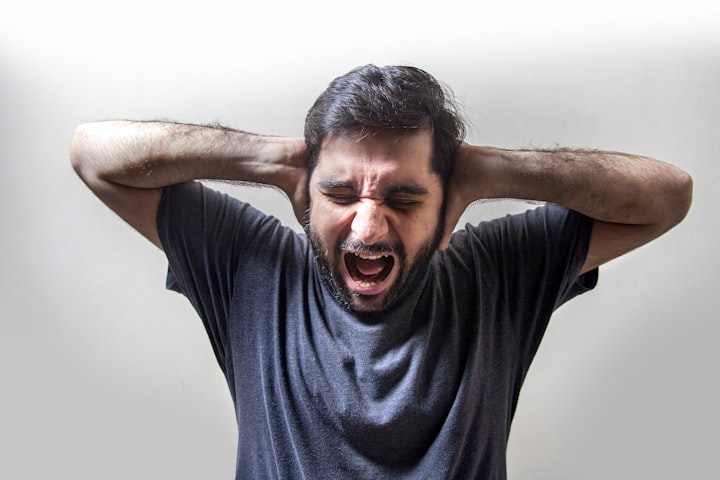10 common physical symptoms of Anxiety
Recognizing the Physical Toll: 10 Common Symptoms of Anxiety

Introduction:
Anxiety is a common mental health condition that affects millions of people worldwide. While it is primarily characterized by feelings of worry, nervousness, or fear, anxiety can also manifest in various physical symptoms. Understanding these physical symptoms is crucial to recognizing and addressing anxiety effectively. In this article, we will explore the ten most common physical symptoms of anxiety and shed light on how they are related to the body's response to stress.
1. Fatigue:

Feeling constantly tired or exhausted is a common physical symptom of anxiety[1]. Anxiety can drain a person's energy due to the body's heightened state of alertness and the constant release of stress hormones. This fatigue can impact daily activities and quality of life.
2. Increased Heart Rate and Palpitations:
Anxiety can cause an increased heart rate and palpitations[1]. This is due to the body's fight-or-flight response, where the heart pumps faster to supply oxygenated blood to the muscles and organs. These sensations can be alarming but are a natural response to perceived threats.
3. Shortness of Breath:

Many individuals with anxiety experience shortness of breath or a feeling of being unable to take a deep breath[1]. This symptom often results from hyperventilation or rapid breathing, which can occur during anxiety or panic attacks.
4. Dizziness:
Feeling lightheaded or dizzy is another physical symptom associated with anxiety[1]. This can be attributed to changes in blood flow and oxygen levels in the body during moments of heightened stress or anxiety.
5. Muscle Aches and Tension:
Muscle aches and tension are common physical symptoms of anxiety[1]. Anxiety causes the muscles to contract and remain tense, leading to discomfort, pain, and even headaches. This tension can also affect sleep quality and overall physical well-being.
6. Headaches:
Headaches are frequently reported by individuals experiencing anxiety[3]. They can range from mild to severe and may be accompanied by muscle tension in the neck and shoulders. Stress-induced headaches can significantly impact daily functioning and quality of life.
7. Digestive Discomfort:
Anxiety can manifest in digestive issues such as stomach pain, nausea, and vomiting[1]. The gut and the brain are closely connected through the gut-brain axis, and anxiety can disrupt digestion, leading to these discomforting symptoms.
8. Tingling Sensations:
Some people with anxiety may experience tingling sensations or numbness in their extremities[1]. This can be attributed to changes in blood flow or the body's heightened state of alertness, which can affect nerve sensitivity.
9. Sweating:

Excessive sweating, particularly in the palms, armpits, or face, is a common physical symptom of anxiety[3]. Sweating is part of the body's response to stress and helps regulate body temperature during moments of heightened anxiety.
10. Insomnia:

Anxiety can significantly impact sleep patterns, leading to difficulty falling asleep or staying asleep[3]. Racing thoughts and worries can make it challenging to relax, resulting in insomnia. Lack of quality sleep can further exacerbate anxiety symptoms.
Insomnia can have various causes, including stress, an irregular sleep schedule, poor sleeping habits, mental health disorders, physical illnesses, medications, neurological problems, and specific sleep disorders. Stress can lead to hyperarousal and disrupt sleep. Irregular sleep schedules, such as jet lag and shift work, can also cause insomnia. Unhealthy lifestyle choices, such as excessive caffeine or alcohol consumption, smoking, and lack of exercise, can increase the risk of insomnia. Additionally, certain medications, such as those used to treat allergies, high blood pressure, or depression, can interfere with sleep patterns. It is essential to identify and address the underlying causes of insomnia to effectively treat the condition.
Conclusion:
Anxiety can affect individuals both mentally and physically. Recognizing the physical symptoms associated with anxiety is essential for understanding and managing the condition effectively. From fatigue and increased heart rate to muscle tension and digestive discomfort, these physical symptoms serve as signals of the body's response to stress. Seeking professional help from a healthcare provider or mental health professional is crucial for proper diagnosis, treatment, and support in managing anxiety. Remember, you are not alone, and effective treatment options are available to help you lead a healthier, more balanced life.





Comments
There are no comments for this story
Be the first to respond and start the conversation.